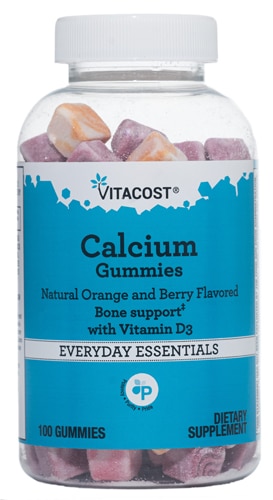[vc_row][vc_column][vc_column_text]Millions of Americans turn to
vitamins and supplements to boost their health. In fact, 57.6% of adults 20 and older take at least one supplement in a given 30-day period, according to
a study published in 2021 by the Centers for Disease Control and Prevention.
But although more than half the country is familiar with supplements, there are probably many facts consumers do not know about these products.
Following are some of the lesser-known facts about supplements that you should know.

Surprising Supplement Facts
1. Supplements were introduced in the early 1900s
Back in 1912, Polish-American biochemist Casimir Funk discovered the vitamin, although he used the label “vitamine.” Through the middle of the 20
th century, scientists learned more about vitamins.
As the
National Institute of Health notes, the process of discovery “was a slow, stepwise progress that included setbacks, contradictions, refutations, and some chicanery.”
A few years after Funk's discovery,
Mastin's Yeast Vitamon Tablets appeared. They contained vitamins A, B, and C, iron and calcium. At the time, many people suffered from poor nutrition, and it was believed that these supplements might boost their long-term health.
The first One-A-Day supplement appeared in 1943, igniting the supplement revolution that continues to this day.
2. Women are far more likely than men to take supplements
Use of supplements is much higher among women (63.8%) than among men (50.8%), according to the CDC.
As people grow older, they are more likely to take two, three or even four supplements. Among women ages 60 and older, 80.2% take at least one supplement regularly.
3. Three supplements are more popular than the rest
There are many different types of supplements available today, but the
CDC says the three most popular among all age groups are multivitamin-mineral supplements, vitamin D supplements and omega-3 fatty acid supplements.
After that, the most popular supplements differ by age. For example, the fourth most popular supplement is:
- Vitamin C for those who are 20-39
- Botanicals for those who are 40-59
- Calcium for those 60 and older
4. Supplements generally should be taken in the morning
Experts say taking supplements in the morning makes the most sense. That is because digestion slows when you sleep, meaning you won't absorb the supplement as efficiently as you slumber.
However, some people may experience stomach upset when doing this. In that case, it makes sense to take them before bed. The most important thing is to develop a routine that works for you and to stick with it.
5. Most supplements should not be stored in the refrigerator
Storing supplements in a cool, dry place is optimal. A refrigerator is cool, but it’s far from dry.
By storing your supplements in the fridge, you could reduce both their shelf life and their effectiveness.
Of course, some supplements actually keep better in the fridge, including liquid vitamins, some essential fatty acids and
probiotics.
If the packaging recommends storing the supplement in the refrigerator, you should do so. But for most supplements, forget the fridge.
6. Some supplements should not be taken together
People who take multiple medications must be careful not to combine drugs that can interfere with each other and reduce effectiveness. That
same rule holds true for supplements.
For example, taking a vitamin C and vitamin B-12 supplement at the same time can limit the amount of vitamin B-12 you get. So, take these supplements at least a couple of hours apart.
Also, some supplements should be avoided if you take specific medications. For example, if you take a blood thinner, you generally should steer clear of vitamin A and vitamin K supplementation.
It is always wise to consult with your physician before taking a supplement.
7. You should not take supplements that have past their expiration date
Taking a multivitamin or other supplement past its expiration date is probably not a good idea. Once the supplement expires, it begins to lose its effectiveness.
If you consistently find yourself with supplements that have expired, experts recommend buying the supplement in smaller packages.
8. You should dispose of supplements carefully
Some cities and pharmacies may policies that allow you to drop off expired drugs and supplements. This is your best bet if the service is offered in your community, according to the
U.S. Food and Drug Administration.
If you have no other way to get rid of expired supplements, you can throw them in the trash. Just make sure they are concealed in a way that children and animals cannot get to them.
The FDA recommends mixing them with dirt, cat litter, used coffee grounds or another unappealing substance.
9. Gummy supplements are more popular than ever
Gummy vitamins and supplements originally were aimed at children as a way to get them to take these products. But in 2012, Irish supplement maker Perrigo began marketing gummy products to adults.
By 2016, gummy supplements accounted for $1 billion of the supplement market in the U.S. By last year, global sales of gummy vitamins
topped $7 billion.
While people love gummy supplements, they come with two major drawbacks. You may have to take more of a gummy supplement to get the equivalent of its pill-form counterpart, which makes gummies more expensive. And gummy supplements often contain a substantial amount of sugar.
There also are concerns that because gummy supplements taste so good, people might be inclined to consume more of them than they should.
10. Supplements are not just for humans
Supplements have crossed over from the world of people and are now used to
boost the health of pets.
These supplements are used to treat a wide range of conditions in pets, including attempting to boost joint health, heart health, skin and coat health, and digestive health.
As of 2017, one-third of dog owners and one-fifth of cat owners gave these supplements to their pets, according to the
American Veterinary Medical Association.
However, just as with humans, caution is important when giving supplements to pets. VCA Animal Hospitals recommends you talk to your veterinarian before giving any supplement to your pet.[/vc_column_text][/vc_column][/vc_row][vc_row][vc_column][vc_text_separator title="Featured Products" border_width="2"][vc_row_inner equal_height="yes" content_placement="middle" gap="35"][vc_column_inner width="1/3"][vc_single_image image="165992" img_size="full" alignment="center" onclick="custom_link" img_link_target="_blank" css=".vc_custom_1680877032013{padding-right: 7% !important;padding-left: 7% !important;}" link="https://www.vitacost.com/trubiotics-daily-probiotic-digestive-immune-health"][/vc_column_inner][vc_column_inner width="1/3"][vc_single_image image="165991" img_size="full" alignment="center" onclick="custom_link" img_link_target="_blank" css=".vc_custom_1680877048552{padding-right: 7% !important;padding-left: 7% !important;}" link="https://www.vitacost.com/havasu-nutrition-vitamin-c-gummies"][/vc_column_inner][vc_column_inner width="1/3"][vc_single_image image="165990" img_size="full" alignment="center" onclick="custom_link" img_link_target="_blank" css=".vc_custom_1680877063676{padding-right: 7% !important;padding-left: 7% !important;}" link="https://www.vitacost.com/vitacost-synergy-vegan-multivitamin-including-green-foods-and-digestive-enzymes"][/vc_column_inner][/vc_row_inner][/vc_column][/vc_row]




